Our Executive Committee
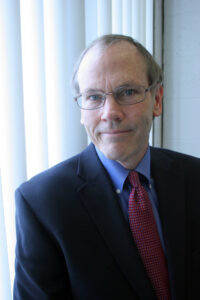
Alex Hinton, Director
Alex Hinton (@AlexLHinton) is a Distinguished Professor of Anthropology and Director of the Center for the Study of Genocide and Human Rights at Rutgers University. He is the author or editor of seventeen books, including, most recently, It Can Happen Here: White Power and the Rising Threat of Genocide in the US (NYU, 2021), Anthropological Witness: Lessons from the Khmer Rouge Tribunal (Cornell, 2022), and Perpetrators: Encountering Humanity’s Dark Side (Stanford, 2023).
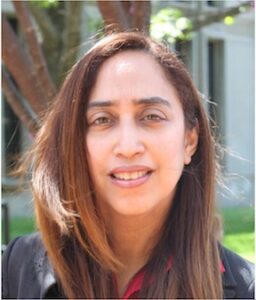
Nela Navarro, Member of CGHR Executive Committee,Associate Director & Director of Education
Nela Navarro is the Associate Director and Director of Education at the Center for the Study of Genocide and Human Rights, a member of the center’s UNESCO Chair’s executive committtee, Assistant Teaching Professor in the English Department. Her research interests include linguistic justice, linguicide, cultural genocide, language rights, language and identity, trans-lingual pedagogy, writing studies, new literacies studies, critical pedagogy, writing as sites of recursive memory, educational reform, comparative global education, the role of technology in educational access, technology and hate speech, human rights, genocide and peace education. She is translator of Towards a Just Society: The Personal Journeys of Human Rights Educators (University of Minnesota 2015) and co-author of Translingual Translingual Identities and Transnational Realities in the U.S.College Classroom (Routledge 2020).
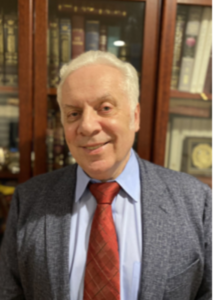
Igor Kotler, Member of CGHR Executive Committee & Director of Global Relations
Igor A. Kotler studied history at UCLA and taught Jewish, Russian, Soviet, American and World history at UCLA, the University of Judaism (now American Jewish University), FIDM, Golden Gate University and Moorpark College in California and religion at the University of Phoenix. He served as Historian at Survivors of the Shoah Visual History Foundation in Los Angeles and as Senior Historian at the Museum of Jewish Heritage in New York. Currently, he is President and Executive Director of the Museum of Human Rights, Freedom, and Tolerance, Director of Global Relations at the Center for the Study of Genocide and Human Rights at the Rutgers University, where he is in charge of the Global Anti-Semitism project, Vice Director of the International Council of Dialogue and Diplomacy, and Senior Research Associate at the International Educational and Research Center of the Holocaust and Genocides History at the Russian State University for the Humanities (Moscow) and at the European Center for Democracy Development. Igor A. Kotler published over 30 articles and book chapters in three languages. He co-edited five books in English and Russian based on conferences dedicated to the Holocaust and anti-Semitism. He is a member of the NJ State Commission on Holocaust Education.
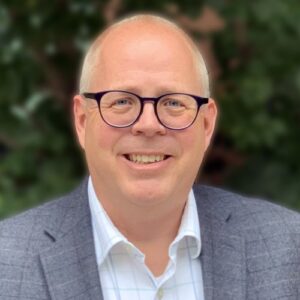
Dean JD. Bowers, Member of CGHR Executive Committee
Dean JD. Bowers is dean of the Honors College and Professor of the Practice in Africana Studies and History. He has over fifteen years of experience in honors education focused on the promotion of inclusion, societal issues, interdisciplinarity, the development of innovative courses, and student scholars and leadership programs.He has taught honors courses focused on genocide, human rights, Black Studies, and history. His courses on genocide and mass atrocities (focused on Bosnia, Cyprus, and Rwanda, and the pursuit of post-atrocity justice) also include study abroad programs to sites within those countries as well as to Den Haag, Netherlands, to learn about the ICC and other international tribunals and judicial efforts. Dean Bowers serves as a Faculty Fellow for the Honors College and lives in 5 Seminary Place alongside many of our students, sponsoring and engaging in college events, activities, and programming, as well as serving as a mentor for those students who value the intersectional dimensions of our living-learning community.
Our Visiting Scholars
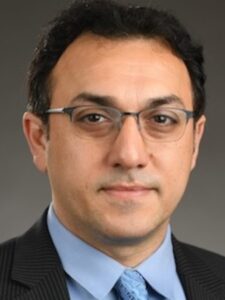
Mohamed Alsiadi
Dr. Mohamed Alsiadi is a Senior Lecturer at Fordham University. He received his B.A. from the Damascus Music Conservatory, where he specialized in oud performance and conducting. He studied with renowned oudist Nadim Al Darwish, the son of composer and scholar Ali Al Darwish, for many years. He performs on an Iraqi oud made by the oud master Yaroub Mohammed Fadel.
A regular guest of international festivals both as a soloist and chamber musician, Alsiadi has recently performed at the Royal Conservatory in Toronto, the national auditorium in Madrid, the historic Nidaros Cathedral in Norway, GUST University in Kuwait, and Merkin Hall in New York City. Other highlights include his debuts at Vienna Konserthaus in 2012 and Carnegie Hall in 2015 with The Malek Jandali Trio, Skoll World Forum 2016, and Sydney Opera House. Alsiadi is particularly excited to be working with Aleppo Ensemble in recording his new album (Music of Aleppo). Alsiadi has also directed several concert series and festivals on Arabic music, and he has developed an extensive and exceptionally varied catalogue of Arabic music recordings.
At various international conferences, he has presented research on song forms central to Middle Eastern music, namely Arabic-sung poetry called qasida, and the Aleppian Wasla, a song-form that is one of the foundations of Syrian songs. He is the chair of the US-MidEast program at the Center for the Study of Genocide and Human Rights at Rutgers University. He is finalizing his doctorate in American Studies at Rutgers University and his research interests include Arab-American relations; the impact of Mideast-West relations on contemporary Arabic music and literature; and the diaspora of the Aleppian Wasla in the West.

Igor Kotler
Igor A. Kotler studied history at UCLA and taught Jewish, Russian, Soviet, American and World history at UCLA, the University of Judaism (now American Jewish University), FIDM, Golden Gate University and Moorpark College in California and religion at the University of Phoenix. He served as Historian at Survivors of the Shoah Visual History Foundation in Los Angeles and as Senior Historian at the Museum of Jewish Heritage in New York. Currently, he is President and Executive Director of the Museum of Human Rights, Freedom, and Tolerance, Visiting Senior Research Fellow and Head of the US-Russia-Former Soviet Union Dialogue Project at the Center for the Study of Genocide and Human Rights at the Rutgers University, Vice Director of the International Council of Dialogue and Diplomacy, and Senior Research Associate at the International Educational and Research Center of the Holocaust and Genocides History at the Russian State University for the Humanities (Moscow).
Igor A. Kotler published over 30 articles and book chapters in three languages. He co-edited five books in English and Russian based on conferences dedicated to the Holocaust and anti-Semitism. He is a member of the NJ State Commission on Holocaust Education. He participated in many conferences on human rights, anti-Semitism, racism, and xenophobia in the United States, Russia, Germany, Moldova, Kyrgyzstan and Latvia, including the UNHCR Refugee Congress in 2011. He actively works in tolerance and human rights education and do research on country conditions of the former Soviet states.
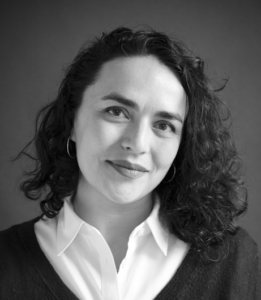
Natasha Zaretsky
Dr. Natasha Zaretsky received her Ph.D. in anthropology from Princeton University, focusing her research on the aftermath of political violence and genocide in Argentina, specifically the social movements and human rights groups formed to advocate for memory and justice. Her broader research interests include the role of memory and truth in rebuilding communities and nations in the Americas, and the impact of genocide and human rights on diaspora communities.
Dr. Natasha Zaretsky received her Ph.D. in anthropology from Princeton University, focusing her research on the aftermath of political violence and genocide in Argentina, specifically the social movements and human rights groups formed to advocate for memory and justice. Her broader research interests include the role of memory and truth in rebuilding communities and nations in the Americas, and the impact of genocide and human rights on diaspora communities.
She is currently a Clinical Associate Professor at New York University and a Visiting Scholar at the Center for the Study of Genocide and Human Rights at Rutgers University, where she leads the Truth in the Americas project. Her latest book is Acts of Repair: Justice, Truth, and the Politics of Memory in Argentina (Rutgers University Press 2021). Other research interests include undocumented migrants in the US and the post-Soviet Jewish diaspora. In addition to her writing, she has two documentary films – Los Ojos de Victor (co-directed with Gisela Insuaste, about public art in contemporary Cuba) and 1000 Mondays (about the politics of memory in Argentina).